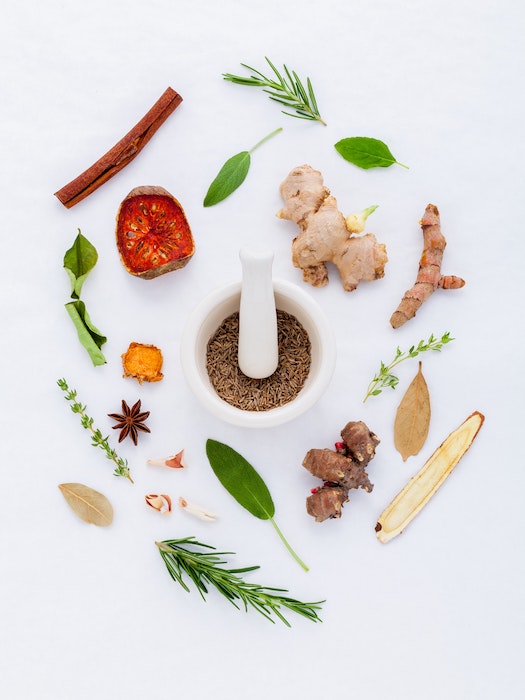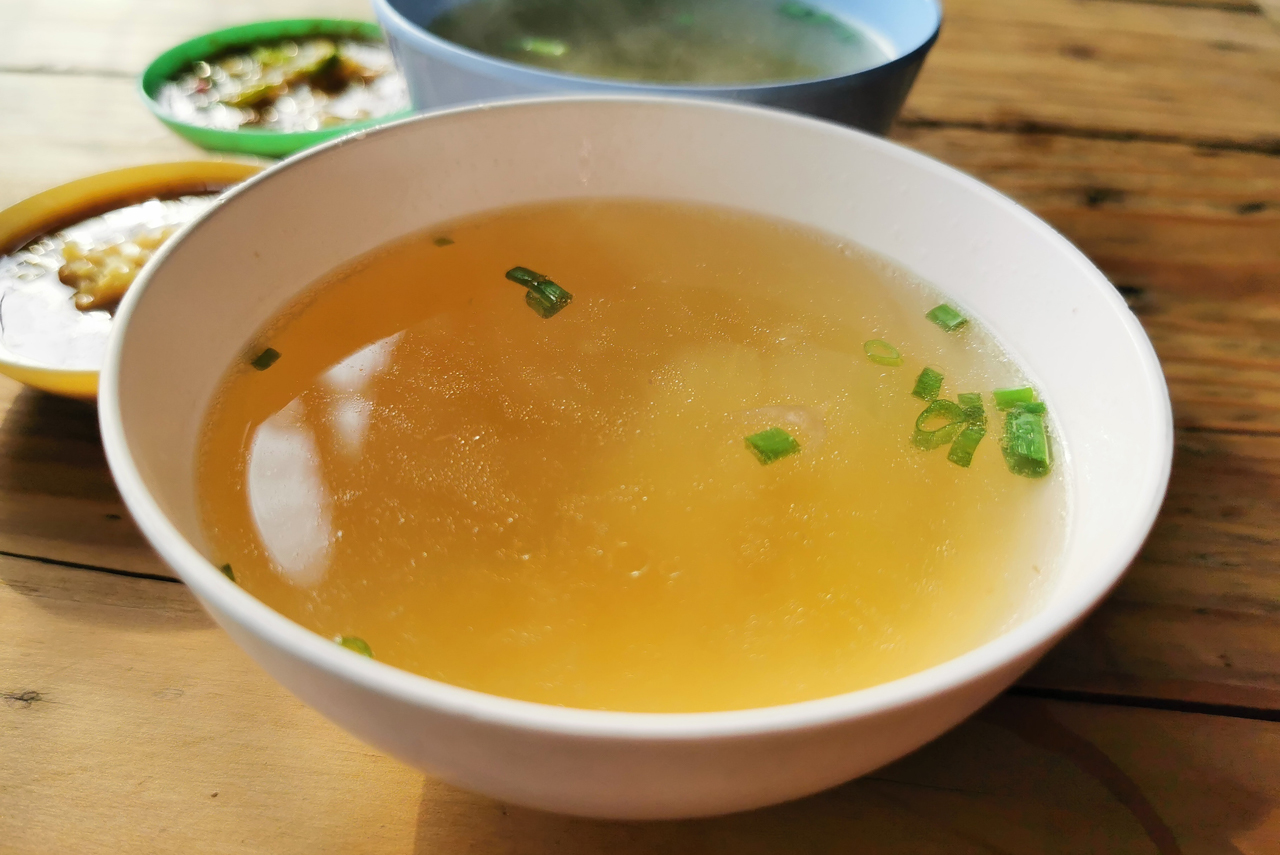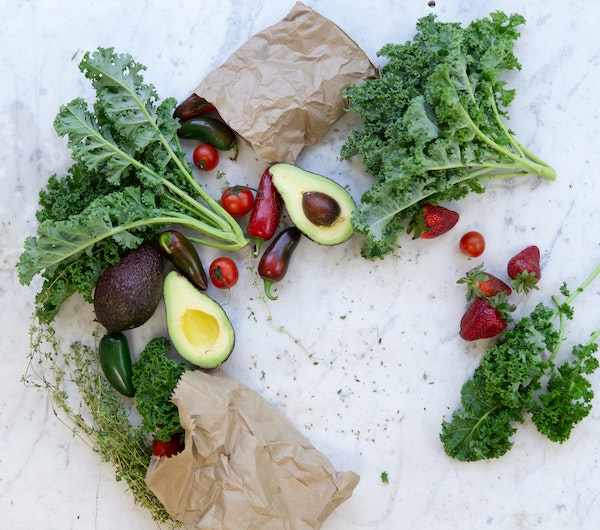Have you ever wondered how to improve gut health or what effect it has on your health overall?
Researchers and doctors alike are acknowledging that the health of our gut affects many functions in the body. The research on the gut microbiome and gut health is fascinating and becoming stronger and more compelling all the time.
As it turns out, your gut health not only plays a role in digestion and waste elimination but also affects your physical and mental health overall.
The health of your gut and the diversity of the gut microbiome (all the good and bad bacteria living in the gut) plays a role in mood, hormone production and regulation, immune function, your ability to rest and relax, and important communication between the gut and other systems in the body.
Gut Health Symptoms
The symptoms of an unhealthy gut are widespread and can show up as more obvious digestive disturbances including bloating, gas, diarrhea, constipation, digestive pain and discomfort, reflux, food sensitivities, or generally just feeling tired or icky after meals.
Gut related symptoms may also present as more mysterious signs that are seemingly unrelated to your digestion.
These symptoms can include:
Headaches
Brain fog
Lack of clarity or focus
Memory challenges
Low energy
Fatigue or sluggishness
Mood swings
Anxiety
Irritability
Depression
Hormone imbalances
Acne and rashes
Itchy skin
Aches & pains
Generally feeling “blah”
All of these challenges can be related to issues in your gut. Crazy, right? Many of these challenges won’t show up on typical lab tests and often your results will come back completely normal. But if you feel like something is off, you’re absolutely right.

The good news is there is something you can do about it!
Now for the important question… How to improve gut health?
There are many simple and effective (although not always easy) things you can do to dramatically improve your digestive health. These changes will help eliminate uncomfortable symptoms and promote your health overall.
The symptoms related to gut issues can be signs or precursors of much more serious health conditions. It is super important to listen to the messages your body is sending so you can identify and treat the root cause. The underlying cause often turns out to be related to poor gut health.
Here’s How to Improve Gut Health
Use these 5 effective tips to get started feeling better today. Gut healing is a journey, so why wait to get started! Here are a few tools you can start implementing right away that will help you feel better and get your digestion flowing.
1. Eat Organic, Whole Foods
“Let Food Be Thy Medicine, And Let Medicine Be Thy Food.”
– Hippocrates
In our modern culture, we are relearning what Hippocrates acknowledged so many years ago. He knew how important it was to eat real foods in their whole form. Adding more whole foods into your meals and snacks is the first step toward gut healing.
What you eat directly affects every cell in your body. Fueling your body with nutrient-dense, real food will help you function optimally. If you fuel your body with nutrient-void, processed, and refined foods, you’ll deplete yourself on a cellular level.
- Organic fruits, veggies, herbs, and spices are helpful in reducing inflammation, supporting digestion, helping us to heal, and providing essential nutrients, vitamins, and minerals.
When you eat more whole foods, they’ll naturally crowd out more processed, sugary, and refined foods. For many, it’s helpful to focus on what to add in versus what to eliminate.
An important note… if you have serious health conditions, are on medications, or are pregnant or nursing, please talk with your doctor before you start this process.
When you eliminate foods and turn to whole foods, your body will start to cleanse and detox. The reactions to these changes can be uncomfortable and even harmful if not done properly. It’s important to make sure that these steps are safe for you and that you have the proper support you need to be successful on your journey.
2. Minimize Inflammatory Foods
Foods that cause inflammation directly impact the health of your digestive tract and impair digestive function. Inflammation takes its toll on the balance of bacteria in the gut microbiome. It also affects the intestinal lining’s protective mechanism, which is designed to keep unwanted particles out of the bloodstream.
Processed, chemical, and preservative ridden foods will cause inflammation, destroy the good bacteria in your gut, and weaken the gut lining. In addition, refined sugar and alcohol are both inflammatory and can cause serious problems in the gut.
Remember this… real food is THE ingredient, not AN ingredient.
Eating organic, whole food is the simplest way to avoid many of the chemicals, toxins, antibiotics, and hormones that are on conventionally raised crops, meat, eggs, and dairy. These additives destroy the good bacteria in the gut. They’ll throw off the balance in your microbiome, causing serious challenges in your gut and potentially your overall health.
The more you can incorporate organic food that has been grown and raised by good practices, the better.
Notice What Foods Trigger You
Notice what foods your body seems to do well with and what foods it doesn’t like. Not what foods you’re craving, but rather “how do I feel after eating this food?”
Some of the big culprits are sugar, gluten, grains, dairy, soy, and eggs. Many people don’t digest gluten and dairy well. We’re all affected by refined sugar in some way. And, for people with gut health issues, grains can often be challenging.
We’re all unique and our sensitivities and reactions will also be unique. The only way to know what triggers your system is to go through the process and figure out what you’re sensitive to.
Good News!
Some of the foods that are triggers for you now, may not be triggers once your gut is healthy.
There are a couple of ways to find out what foods specifically trigger you. Several food sensitivity tests can be useful in providing information, but they all have their limitations and flaws. These tests are best used in conjunction with a food elimination diet and/ or food journal.
Elimination and Food Journaling
The most effective way to find out what your trigger foods are is to eliminate the suspected triggers. For starters, you completely remove one or more suspect foods from your diet.
The goal is to identify your trigger foods, work on cleaning up and repairing your gut, and then slowly adding those trigger foods back in to reassess your body’s response. Some foods may continue to cause inflammation in your body, while others may be tolerated minimally or completely.
After several weeks, add one food at a time back in observing your body’s reaction for 72 hours and notice how that food makes you feel. Do you feel discomfort, itchy, sluggish, bloated, anxious, have headaches, or any other symptoms?
Using a food journal or chart to track your suspect foods can be helpful for interpreting your results. If you notice a food makes you feel bad in any way, it’s likely a trigger food causing inflammation in your body. Leave trigger foods out of your diet so you can get a clear picture when you add the next food in.
It’s helpful to go through this process with a clear plan and the support of a practitioner, so you can track and get a clear picture of what your trigger foods are. If you’d like more support in this area, message me to set up a free consultation and see how we can work together to help you heal.

3. Add in Foods That Support Good Digestion
There are many foods that will benefit your digestive health and can be easily integrated into your diet.
I suggest working with a practitioner to figure out which foods will help your body the most. If you have serious health conditions or are on medication, always consult your doctor before adding in any medicinal foods.
We’re all unique, so what works for one person may not be the best fit for another. If something is not working for you, be sure to stop right away.
Here are a few foods that might be helpful:
Ginger
- Promotes good digestion by soothing the intestinal tract, promoting good motility, increasing the production of bile, and reducing inflammation. To easily incorporate fresh ginger, add it to your cooking or make this homemade ginger tea.
Turmeric
- Curcumin, the active ingredient in turmeric, reduces inflammation in the body. As we’ve discussed inflammation destroys the good bacteria and the integrity of the gut lining. You can add turmeric into your cooking or make the delicious Ayurvedic healing drink, golden milk. We like to make red eggs & kale for breakfast or lentil, turmeric stew.
Organic, raw, and unfiltered apple cider vinegar (with the mother culture)
- Apple cider vinegar can help to increase stomach acid which is essential for properly breaking down your food. Many problems are caused further down the digestive tract due to insufficient stomach acid. You can try taking one teaspoon in a glass of water before each meal and see if you notice a difference.
Bitter foods
- Foods such as arugula, chickory, and grapefruit can help to improve digestion in many ways. These bitter foods help to increase digestive enzymes in the body, improve nutrient absorption, and reduce inflammation.
4. Decrease your toxic load
Decreasing toxins and chemicals in your life is an important tool when thinking about how to improve gut health. These toxins destroy the good gut bacteria and promote an environment for the bad guys to take over.
Toxins will wreak havoc on your gut lining, allowing particles into the bloodstream that aren’t meant to be there. Toxic substances cause inflammation and disrupt our natural processes in the body.
Ways to Decrease Your Toxic Load
Eat Organic Fruits and Vegetables
- These foods provide the necessary fiber, nutrients, vitamins, and minerals that you need to ensure optimal nutrient absorption and waste elimination.
- Whole nutrient-dense fruits and vegetables cleanse our bodies of unwanted pathogens and toxins.
- Vegetables promote a healthy environment to feed the good bacteria and keep the bad bacteria in check.
- By eating organic, you’ll minimize the number of toxins that you take in from your food.
Drink Clean Water
- Water is another valuable source of fuel for our bodies.
- It’s essential for our bodies to function optimally and eliminate toxins and waste.
- Unfortunately, our tap water has way too many chemicals and toxins in it that will hinder these functions.
- It’s super easy and incredibly effective to invest in a quality water filter.
- There are great carbon and reverse osmosis filters for both under the counter or on the counter.
- These are easy to install and use and will go miles in promoting your health.
- Take a glass or stainless steel water bottle with you when you go out to ensure that you are drinking clean water.
Improve the Quality of Your Air
- The quality of the air you breathe is super important.
- There are toxins and chemicals all around us these days.
- Our furniture, furnishings, home materials, and paint off-gas chemicals into the air.
- There are molds and toxins that develop over time in our homes.
- Dust collects and binds to toxins in our environment.
- Open your windows daily for at least 10 minutes, even in the winter.
- Indoor air is much more toxic than the outdoor air in most places.
- Allowing fresh air to come in and toxic air to leave can massively change the quality of the air in your home.
- Have filtering house plants in every room in your home.
- Great filter plants are the snake plant, dracaena, spider plants, and peace lilies.
- These plants will decrease toxins and chemicals in the air and improve your home environment.
- Use a quality HEPA air filter to filter out toxins, chemicals, and dust.
- HEPA filters are able to filter tiny particles and are known to be the most effective air filters.
- Use low toxic products and materials
- Buy non-toxic or second-hand furniture and furnishings.
- Use “no VOC’ or at least “low VOC” paint, glues, and stains.
- Get low toxic materials for projects and home maintenance.
5. Work on Reducing and Managing Your Stress
Stress is a major culprit for negatively impacting the health of your gut.
It drives up cortisol levels, a hormone related to the protective fight or flight response. Stress increases blood sugar levels in the body and causes increased inflammation. Inflammation destroys the good bacteria in the gut and the integrity of the gut lining.
In addition, stress impairs our ability to digest and absorb critical nutrients from our food. When you’re in a heightened, fight or flight state controlled by the sympathetic nervous system, it’s impossible to rest and digest.
Our ability to rest, relax, and digest is controlled by the opposing side of your nervous system, the parasympathetic nervous system. It’s either fight or flight or rest and digest, but we simply can’t do both at the same time.
Calming your nervous system before you eat can be beneficial to amp up your ability to digest during meals. One way to calm your nervous system before meals is to take 3 deep breaths.
You can practice chewing your food more; at least 30 times per bite is the recommendation.
Eliminating distractions (phones too!) while you’re eating can also be helpful digesting your food.
Other Ways to Decrease and Manage Stress Include:
- Exercise & movement
- Breathing exercises
- Meditation
- Mindfulness practices
- Gratitude practices
- Laughter
- Getting good sleep
- Getting outside to connect with nature
To learn more about how to decrease stress on your gut and in your life, grab your FREE download “10 Effective Ways to Reduce Stress On Your Mind and Body”.
Heal Your Gut, Heal Your Life
Fortunately, the same things that promote good gut health, promote good overall mental and physical well-being.
So, as you improve your digestive health, you are also elevating your whole being. In healing the gut, we often heal other parts of our body and life. This holistic process is transformative on many levels.
Find Support
The journey to gut healing is individual for each person since we all have unique needs. What works for one person might not work for another. The vast amount of information and differing opinions in the area of gut health can make this process confusing and complicated.
Having someone to support and guide you towards optimal gut health is invaluable. It’ll save you time, energy, and costs as you set out with a clear plan to heal your gut. Whomever you choose to work with, find a practitioner that is a good fit for you and that you can trust on this journey.
If you would like more information about my coaching services, message me here with questions or to set up your free consultation. I’m honored to be part of your journey toward living your most vibrant life.
Hopefully, I’ve answered some of your questions about how to improve gut health. And, I hope these effective tips will help you get started today on your gut healing journey!
With Love,





